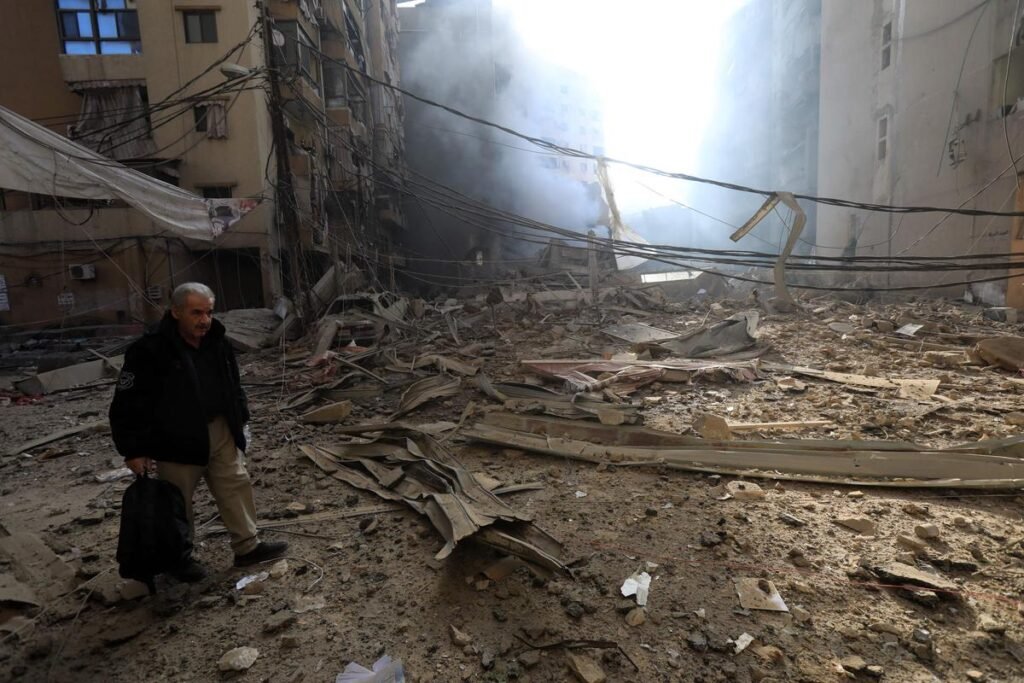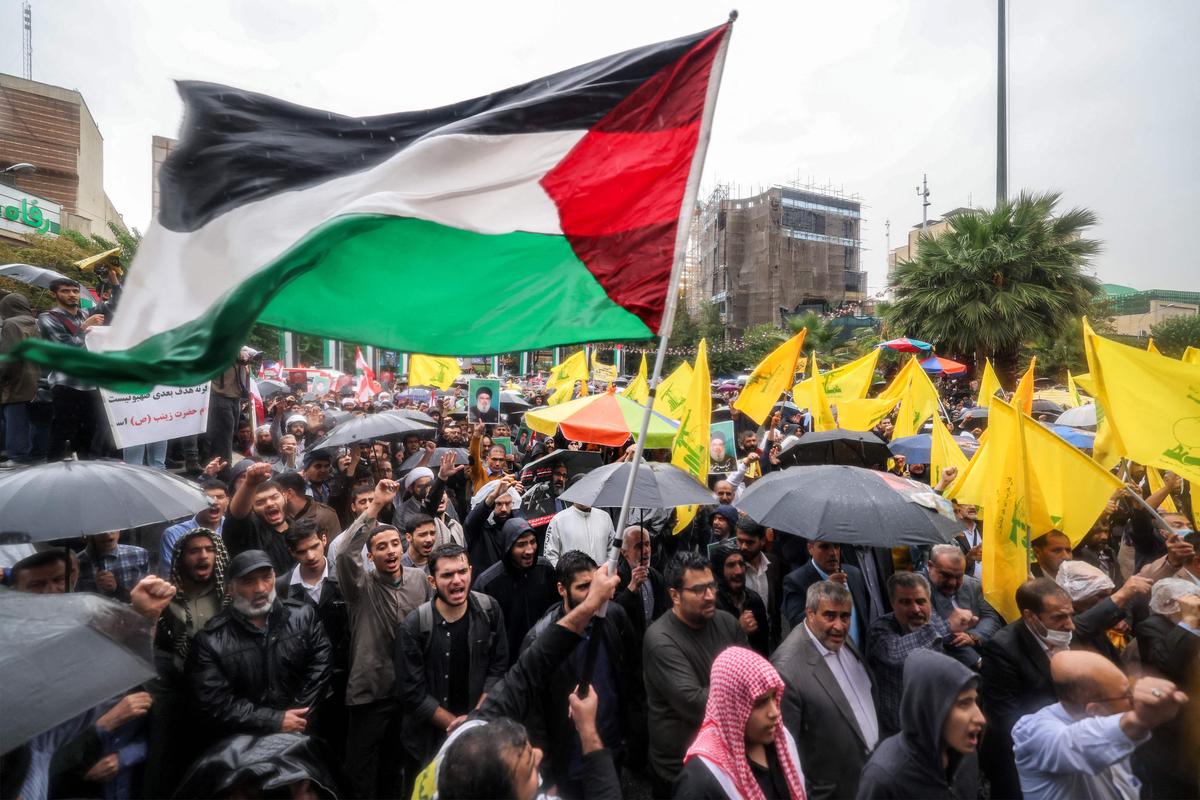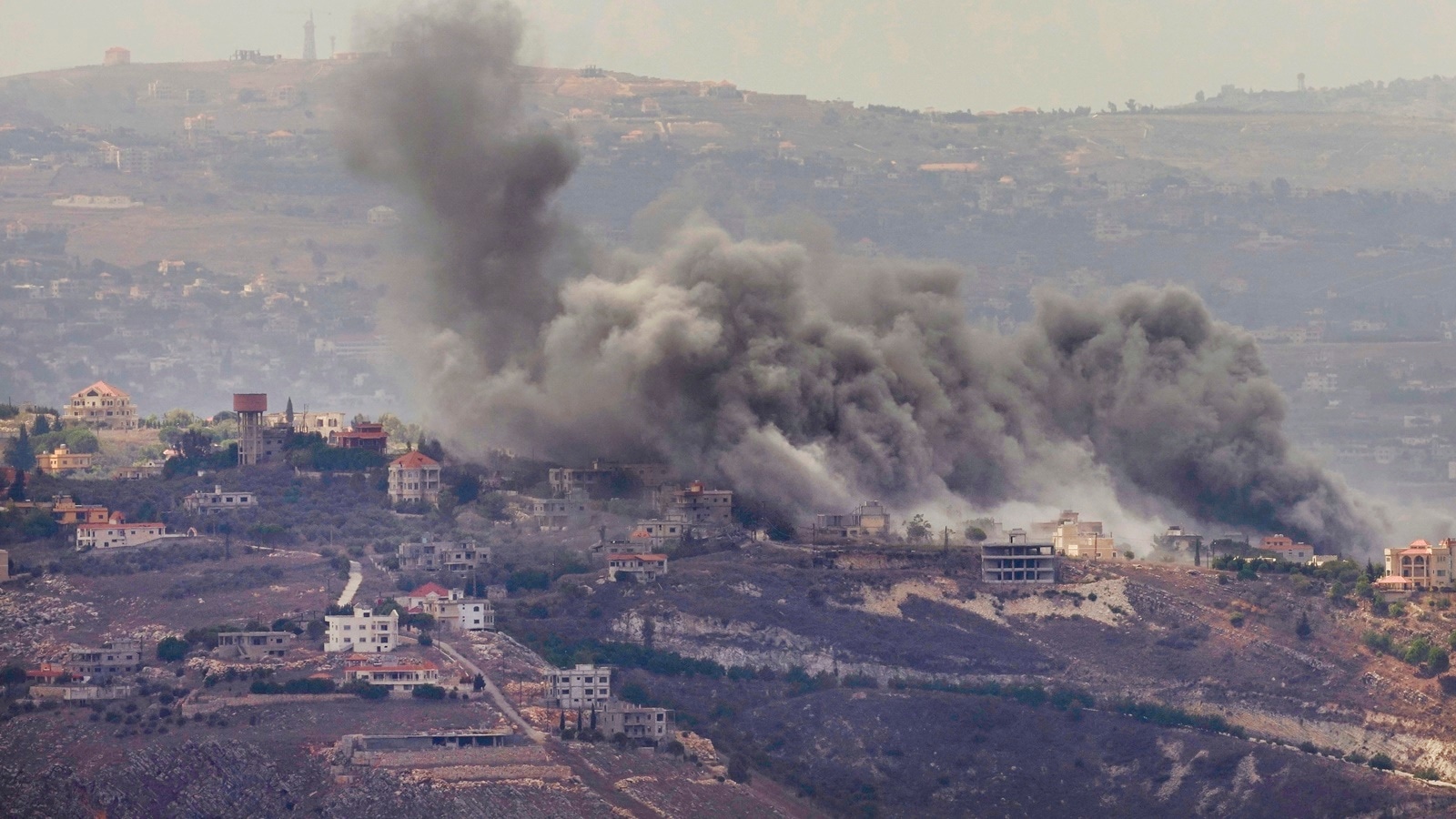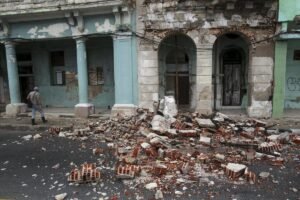
“Civilians Under Fire: The Human Toll of Israel’s Strikes on Beirut”

The current situation in the Israel-Iran conflict is escalating rapidly, with significant military actions and geopolitical tensions marking what many are calling the “most dangerous week of war.” Here’s a detailed look at the latest developments.
Intensified Military Operations
Israel’s Bombardment of Beirut and Gaza
As of October 7, 2024, Israel has intensified its airstrikes on Hezbollah positions in Beirut and Gaza. This marks a significant escalation as Israeli forces conducted their heaviest bombardment yet, targeting military sites and infrastructure associated with Hezbollah. Reports indicate that these strikes resulted in substantial civilian casualties, with the United Nations condemning the attacks for violating international humanitarian law. Israeli Prime Minister Benjamin Netanyahu has vowed to continue these operations, asserting that they are necessary to ensure national security and defeat threats from both Hezbollah and Hamas.
Hezbollah’s Response
In retaliation, Hezbollah has launched rocket attacks on northern Israel, specifically targeting the port city of Haifa. This exchange has led to fatalities on both sides, further exacerbating the humanitarian crisis in the region. Analysts note that the conflict is now multi-fronted, involving not just Israel and Hezbollah but also Hamas and Iranian forces, complicating the military landscape significantly
Iran’s Strategic Movements
Resumption of Air Traffic
Iran has lifted flight restrictions that were previously imposed due to safety concerns amid ongoing military tensions. The Civil Aviation Organization announced that all flights from Iranian airports would resume after deeming conditions safe for travel. This move comes as Iran seeks to stabilize its internal situation while maintaining its military posture against Israel.
Potential for Escalation
Iran’s military actions have also escalated, notably firing ballistic missiles at Israel recently. Israeli officials have warned that such actions will not go unanswered, indicating a potential for significant retaliation against Iranian interests, including nuclear facilities. Israeli Defense Minister Yoav Gallant emphasized that “everything is on the table” regarding responses to Iranian provocations
Global Reactions
International Condemnation and Support
The ongoing violence has drawn widespread international attention. Pro-Palestinian demonstrations have erupted globally, including significant protests in cities like London and Paris against U.S. support for Israel’s military actions. Meanwhile, calls for de-escalation have been made by various international leaders, urging both sides to cease hostilities and protect civilian lives amidst the conflict.
Humanitarian Concerns
The humanitarian situation remains dire, particularly in Gaza where reports indicate approximately 42,000 Palestinian deaths since the conflict escalated last year. The United Nations has called for immediate action to address the humanitarian crisis resulting from ongoing military operations in both Gaza and Lebanon.
What are the implications of Israel’s intensified strikes on Beirut

Israel’s intensified strikes on Beirut have significant implications, both regionally and globally. As the conflict escalates, here are the key consequences:
Humanitarian Crisis
Civilian Casualties and Displacement
The airstrikes have resulted in substantial civilian casualties, with reports indicating that thousands are fleeing their homes in southern Beirut, particularly from the Dahiyeh neighborhood, a Hezbollah stronghold. The ongoing bombardment has exacerbated an already dire humanitarian situation, with over 1 million people displaced within Lebanon due to the conflict. The United Nations has condemned these strikes as violations of international humanitarian law, emphasizing the need to protect civilian lives and infrastructure.
Destruction of Infrastructure
Israeli military operations have targeted not only Hezbollah military sites but also civilian infrastructure, leading to widespread destruction. This has left many residents without essential services and shelter, further complicating humanitarian efforts in the region.
Regional Security Dynamics
Escalation of Conflict
The strikes mark a significant escalation in Israel’s military operations against Hezbollah and Hamas, transforming what had been ongoing skirmishes into a full-scale war. Analysts suggest that this could lead to a broader regional conflict involving Iran and its allies, potentially destabilizing neighboring countries. The recent missile attacks from Iran in retaliation for Israeli actions have already heightened tensions significantly
Hezbollah’s Response
Hezbollah has vowed to retaliate against Israeli strikes, resulting in rocket attacks on northern Israel. This exchange of fire could lead to further military escalation and complicate the security landscape not just for Israel but for Lebanon and the surrounding region as well.
International Reactions
Global Protests and Diplomatic Backlash
The strikes have sparked widespread protests across the globe, with demonstrations against U.S. support for Israel occurring in cities like London and Paris. These protests reflect growing international discontent with Israel’s military actions and raise questions about Western support for its operations in Lebanon and Gaza.
Calls for Ceasefire
International leaders are increasingly calling for a ceasefire and diplomatic solutions to end the violence. French President Emmanuel Macron’s call for an arms embargo on Israel highlights a shift in some Western nations’ stance regarding military support amid concerns over human rights violations.
How are civilians in Beirut coping with the increased bombardment

Civilians in Beirut are grappling with the severe consequences of intensified Israeli bombardments, which have led to widespread displacement and a humanitarian crisis. Here’s how they are coping with the situation:
Displacement and Shelter
Mass Displacement
The ongoing airstrikes have forced over one million people to flee their homes across Lebanon, including many from southern Beirut. Families are seeking refuge in overcrowded and underprepared shelters, such as abandoned buildings and makeshift schools, where basic amenities are lacking. Reports indicate that up to 30 people may share a single bathroom in these facilities, exacerbating the already dire living conditions.
Struggles for Safety
Many displaced individuals express a profound sense of insecurity. Riqad, a man who fled from Tyre to Beirut, stated, “There is no safe place,” highlighting the pervasive fear among civilians that airstrikes could occur anywhere. Others, like Alia, a displaced mother, voiced concerns about returning home, questioning whether there would be houses left to return to after the conflict
Psychological Impact
Trauma and Mental Health
The psychological toll on civilians is significant. Many are experiencing trauma from the constant threat of bombardment. Médecins Sans Frontières (MSF) has mobilized teams to provide urgent medical and mental health support, recognizing the need for psychological first aid amid the chaos. One displaced mother noted that her children would “rather die under bombing than live like this,” reflecting the severe emotional distress faced by families
Community Resilience
Despite the overwhelming circumstances, communities are attempting to maintain some semblance of normalcy. Young people share videos on their phones while older residents try to engage in conversations to cope with their anxiety. Some individuals have temporarily relocated to areas perceived as safer, although these moves often come with their own challenges and fears of further attacks.
Access to Basic Needs
Healthcare Challenges
The bombardment has severely impacted healthcare facilities, forcing many clinics to close or operate at limited capacity. Displaced individuals often arrive at shelters without essential medications for chronic conditions, complicating their health needs during this crisis. MSF has been working to provide basic healthcare services and distribute medical supplies where possible.
Growing Humanitarian Needs
As winter approaches, the situation is expected to worsen. Many people remain on the streets or in open areas without adequate shelter from harsh weather conditions. The urgent need for humanitarian assistance continues to grow as local resources become increasingly strained.

Conclusion
The intensified bombardment of Beirut has plunged civilians into a state of crisis, marked by mass displacement, psychological trauma, and severe challenges in accessing basic necessities. As families seek refuge in overcrowded shelters and struggle to maintain their well-being, the humanitarian situation continues to deteriorate.Despite the overwhelming circumstances, the resilience of the affected communities shines through as they strive to support one another and cope with the ongoing violence. However, with winter approaching and essential services strained, urgent humanitarian assistance is critical to alleviate the suffering of those caught in the conflict.The international community must remain vigilant and responsive to this escalating crisis, advocating for peace and supporting efforts to protect civilian lives. The hope for a resolution that prioritizes human dignity and safety remains paramount as the situation unfolds.
Discover more from
Subscribe to get the latest posts sent to your email.







